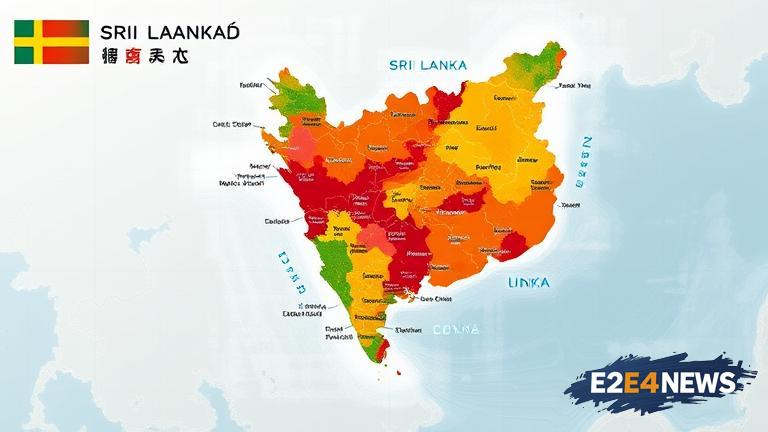Sri Lanka is considering a shift towards a decentralized governance model, with a focus on citizen-centric approaches. This move is expected to bring about significant changes in the way the country is governed, with more power being devolved to local authorities and communities. The current centralized system has been criticized for being inefficient and unresponsive to the needs of citizens. A decentralized model, on the other hand, would allow for more autonomy and decision-making power at the local level, enabling communities to address their unique needs and challenges. This approach would also promote greater transparency and accountability, as local authorities would be more directly accountable to their constituents. Furthermore, a decentralized model would facilitate more effective and efficient delivery of public services, as local authorities would be better equipped to respond to the specific needs of their communities. The shift towards a decentralized governance model is also expected to promote economic growth and development, as local authorities would be able to tailor their economic development strategies to the unique needs and strengths of their communities. Additionally, a decentralized model would allow for greater citizen participation and engagement in the decision-making process, enabling citizens to have a more direct say in the decisions that affect their lives. The move towards a decentralized governance model is also seen as a way to address the country’s long-standing issues of corruption and inefficiency, as local authorities would be more directly accountable to their constituents and less susceptible to centralized control. However, the implementation of a decentralized governance model would require significant reforms and investments in institutional capacity building, as well as the development of new systems and processes for governance and decision-making. The government would need to establish clear guidelines and frameworks for decentralization, as well as provide adequate resources and support to local authorities. Moreover, the success of a decentralized governance model would depend on the ability of local authorities to work effectively with citizens and other stakeholders, and to build trust and credibility with their communities. The shift towards a decentralized governance model is a complex and challenging process, but it has the potential to bring about significant benefits for citizens and communities in Sri Lanka. The country’s history of centralized governance has led to a lack of trust and confidence in government institutions, and a decentralized model could help to address these issues. Overall, the move towards a decentralized governance model is a positive step towards creating a more responsive, accountable, and effective system of governance in Sri Lanka. The country’s citizens and communities are eagerly awaiting the implementation of this new model, and are hopeful that it will bring about significant improvements in their lives. The government’s commitment to decentralization is a welcome development, and it is expected that this approach will have a positive impact on the country’s development and growth. In conclusion, the shift towards a decentralized governance model in Sri Lanka is a significant development that has the potential to bring about positive changes in the country’s system of governance. With its focus on citizen-centric approaches and decentralization, this model is expected to promote greater transparency, accountability, and effectiveness in governance, and to address the country’s long-standing issues of corruption and inefficiency.
